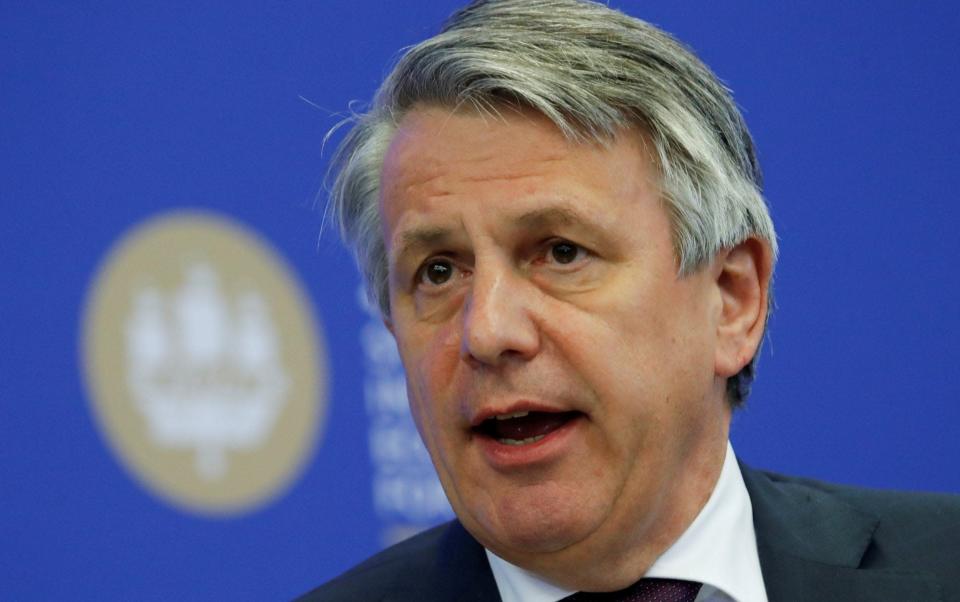Shell defends raising the dividend after profits surge to almost $20bn

The chief executive of Shell has defended his company’s right to pay millions in dividends after a fourfold rise in profits driven by surging energy costs sparked calls for a windfall tax.
Ben van Beurden said the FTSE 100 company played an important role in society by contributing to pension pots after it posted a $19.3bn (£14.2bn) profit for 2021, up from $4.8bn a year earlier.
Shell is increasing its dividend by 4pc to 25 US cents a share, and buying back shares worth $8.5bn in the first half of 2022.
Mr van Beurden, chief executive since 2014, said he “completely understands” the concern about rising energy bills.
But he added: “Now that we have been able to rebuild some of the strength back into the company [post the pandemic], I think it is appropriate that we look at how we pay out [to shareholders].
Given many shareholders are pension funds, “by and large [we] therefore pay out to society as well”, he said, adding: “Having said that, we continue to invest in the energy transition and supply the energy the world needs today.”

Shell’s results triggered renewed calls for a windfall on oil and gas producers. Kate Blagojevic, of Greenpeace UK, said: “While Shell is quadrupling its profits off the back of record-high gas prices, millions of households are left with cold homes and astronomic bills.”
It came as Ofgem, Britain’s energy regulator, announced a 56pc rise in the energy price cap, leaving British households paying an average £1,977 a year for gas and electricity combined.
Global gas supply shortages have triggered price rises around the world including a four-fold increase in the wholesale price in Britain which looks set to continue for months.
Overall, Shell hailed a “momentous year” that also involved setting out plans to cut emissions and shift towards producing greener energy. The company plans to eliminate the net carbon footprint of its products by 2050, and is investing $2-$3bn per year in renewables.
It is under pressure to go faster, however, and is also grappling with tensions in some markets as politicians and campaigners seek to curb fossil fuel production in an effort to cut emissions.
The company recently pulled out of plans to develop the Cambo oil field off the Shetland islands, which had become a lightning rod for anti-fossil fuel campaigners.
Shell still has several fields off UK waters and Mr Van Beurden said: “I think we still want to continue to invest in the UK Continental Shelf, particularly in gas projects that will help alleviate pressures in the near and mid-term.
“There is actually quite a funnel of good gas projects that we want to develop. And of course we are looking for the favourable fiscal environment to make these investments sensible.”
The company also has several projects in Russia and is one of several Western companies funding Nord Stream 2, the controversial pipeline from Russia to Germany under the Baltic Sea.
Critics have accused Russia of restricting gas supplies to Europe to try and pressure Germany into starting up the pipeline. There are also fears gas supplies to Europe could be disrupted if Russia invades Ukraine.
Mr van Beurden said: “We are watching the situation in and around Russia very carefully. So far, Europe has never really suffered disruption [in gas supplies] from Russia even in very troubled geopolitical times.
“If there is disruption, of course we can step in and do whatever we can to keep Europe supplied.”
Analysts at Jefferies said: “We believe today’s announcement should be enough to support the share price, especially when considered together with the strong earnings.”
Shares rose 1.4pc to £19.60, leaving the company worth £147bn.




